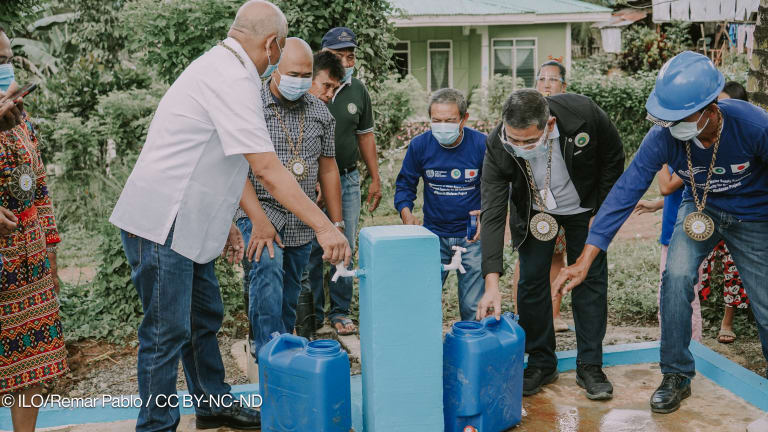
Sombath Somphone was last seen in December 2012 at a police post in Vientiane, before unidentified gunmen took him away in a pickup truck.
On the International Day of the Victims of Enforced Disappearances, his whereabouts remain unknown. And although the reason behind the disappearance of this internationally acclaimed civil society leader and only recipient from his country of the Ramon Magsaysay Award — considered Asia’s Nobel Prize — is officially unknown, many suspect it is related to his human rights work.
Somphone’s case adds to the pile of enforced disappearances in Asia, which now has the highest number of reported cases in the world, according to a report the U.N. Working Group on Enforced of Involuntary Disappearances published in early 2013. Iraq is the undisputed leader with 16,401 reported cases.
Darwin Mendiola, Philippine project coordinator for the Asian Federation Against Involuntary Disappearances, told Devex that the violence persists in many Asian countries mainly due to lack of laws or regulations that prevent states from committing such violations, as well as a regional human rights body with enough power to make governments look into the cases.
He notes many governments in Asia, particularly in the southern part of the continent, remain authoritarian, and human rights is just not part of their priorities.
“They focus more on invoking peace and order, rather than respecting the rights of [their] citizens,” Mendiola said.
Triumphs and struggles
AFAD, a regional federation of human rights organizations, lobbies governments on policy and institutional reforms, and tries to build the capacity of its members to address the issue of enforced disappearances in Asia.
For over 15 years, Mendiola said the group and its members have enjoyed some success, such as the passing by the Philippine government of the Anti-Enforced Disappearance Act of 2012, which adopts the definition of the U.N. convention against enforced disappearances and criminalizes the offense.
But many challenges remain, particularly in Asia, where most governments’ attitude toward human rights issues remains unbecoming.
Mendiola explained members continue to have a hard time filing court cases, especially in South Asia, where they are threatened by their own governments. In fact, just this month the office of Odhikar, a member organization in Bangladesh, was raided, and its director was arrested and accused of “fabricating information” of violence committed by state forces during a crackdown on protesters.
“Security is a big challenge [and] really affects our work on the ground because of fear of reprisal from the government authorities,” said the AFAD spokesman.
Convincing families to press charges is another challenge.
“We don’t have any assurance that through our work we can really put an end to this crime. But we believe through our efforts, we can make this phenomenon bring this issue to the attention of the international community and encourage governments to open up and listen to [the] crying families,” he said.
A role for the aid community
Many donor governments have asked Laos to explain the disappearance of Somphone. Some of them have offered external assistance, although this has been declined by the Laotian regime.
Mendiola said support from donors have been really helpful in pushing Asian countries to improve legal mechanisms concerning enforced disappearances and other human rights issues, but he argued such assistance “will only be useful and effective if governments are sincere and will really make these efforts work.”
He argued this support should be complemented by civil society, and called on donors to help forge collaboration between governments and CSOs in finding a solution on putting an end to enforced disappearances and other forms of human rights violations.
Such abuses are sometimes a direct result of what Mendiola described as “aggressive” development projects that do not take into account people’s human rights, which, in return, hurts a country’s development.
He noted the international community has a role to play in ending enforced disappearances, noting: “A country and society cannot be strong and free if enforced disappearances and other human rights violations continue to happen.”
Read more development aid news online, and subscribe to The Development Newswire to receive top international development headlines from the world’s leading donors, news sources and opinion leaders — emailed to you FREE every business day.








